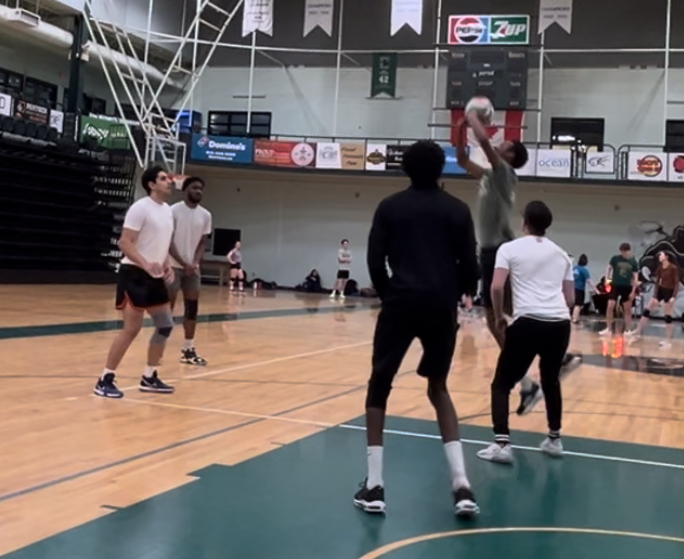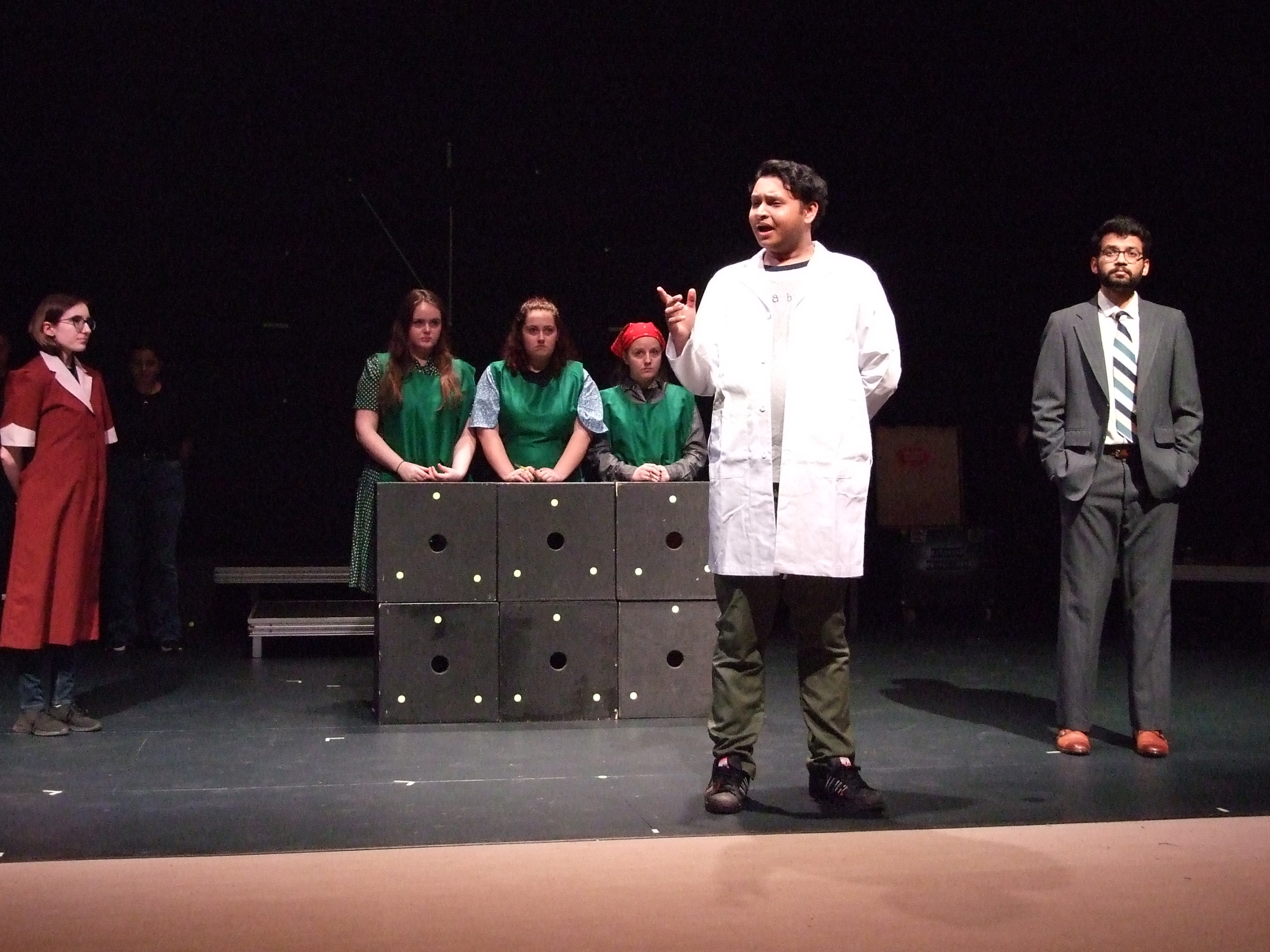By: Via Reyes
I lived on campus for the first two years of my UPEI undergrad and I can proudly say it was a couple of the best years of my life. Even though it felt like butterflies were going to burst out through my stomach on the very first day, after having travelled thousands of miles away from home, away from everything and everyone I knew, adjusting to this new campus and residence life was a lot easier than I thought it would be. I was lucky enough to have an incredible roommate who I got along with right away and who is still one of my best friends to this day, a thriving community of people who I would later call my family away from home, and, I believe most importantly, an amazing RLA. She inspired me to apply for the position, in the hopes that I too could play a part in creating a great experience for current and future residents.
As with most new experiences and endeavours, we tend to learn a thing or two, whether we really plan to or not. The skills and lessons I have learned from being an RLA for only one year are skills and lessons I will be able to carry with me all my life. As applications are once again being accepted for next year’s line of RLAs, here are some things I have learned from being an RLA for a year (and are also basically things I wish I had known before becoming an RLA).
1. No amount of training, and there will be a lot of this, would be able to truly prepare you for what you can encounter throughout the year.
Of course I do not mean that the training is not helpful. Training Week also happens to be one of the best things about being an RLA. The training you receive is intended to prepare you for some of the worst possible scenarios that can happen on the job. However, there were definitely moments throughout the year where I thought, “Okay, wait a minute, where on the manual does this happen?” When you run into these moments, you do not need to panic. Throughout training and throughout your time as an RLA, you will develop skills that will help you to discern the kind of situation you are in and the kind of help you need, if you do require any. Help will always be given in Residence to those who ask for it.Â
2. You may face discouragement, frustrations, and possible breakdowns.Â
Being an RLA may be one of the toughest jobs I have done and will probably ever do. You have to dedicate time into planning a particular number of events and it can be so discouraging when only a few people show up. It can be so frustrating when a night of partying destroys the bulletin boards and/or door decorations you have spent so many hours making. There would be times when all you want to do is crawl into bed after a long night of being on duty and then have an unexpected issue pop up that you have to deal with right before 2AM hits. There would be many occasions where you have to remind residents and their guests of the rules. And often when you do your job of making sure they are implemented, you may encounter people who will not listen and who will be upset with you. You have to deal with all of this along with being a full-time student and maintaining a particular GPA. It is tough work and it can burn you out if you do not remember to put on your “oxygen mask” once in a while.
3. You cannot survive this job without a support system.
Luckily, you have one already built in. It comes with the employment package. This support system consists of your fellow RLAs, your bosses over at the Residence Office, campus security, Student Affairs, etc. Help will always be available. There will always be someone to reach, 24/7. You do not ever have to be alone and simply knowing that often gave me enough confidence to do the things I had to do.
4. Do not hesitate to ask for help when you need it and when you are feeling overwhelmed.
You will say this often to your residents, so why will you not apply this to yourself? I am not going to lie, but this position definitely took a toll on me as it can on anyone who has taken up this role. You are constantly being emotionally, physically, and mentally stretched. I would not have made it without my support system. I regularly reported to my bosses over at the office who were so great to talk to and as a team we often sought each other out when we personally needed to be “RLA-ed.”
5. Reevaluate your reasons for applying. Â
Try not to do this solely for the benefit of having free room and board or for simply that weighty addition to your resume. As mentioned above, being an RLA is not easy, and I believe that being an RLA comes with the responsibility of genuinely caring for your residents and their experience in residence. This job takes heart and if you do not have the heart for the improvement of residence life, you may grow to hate it.
6. Do not keep the Master Key away from its lanyard for too long (also, just do not lose this. That will suck.)
I was even more afraid of losing the master key than my bank cards, as awful as that sounds. Being someone who was prone to losing my own room key, my good friend and fellow RLA Nicky, forced me to carry it around in one of those UPEI lanyards they give out at the beginning of the year. This proved to be very useful since I have not lost my key since. Thank you Nicky J! Also, I got into the habit of keeping both sets of keys on me as often as possible. You do not know when you will be in need of the keys and it saves you time going back to your room and getting them. There is nothing like calling security early Sunday morning to be let into the building and being asked to find the RLA on duty when you are the RLA on duty and happened to leave the Master Key inside your room.
7. Mistakes will happen but you will overcome them.Â
Messing up is a normal part of any job and it does not mean that you are horrible at what you do, as long as you learn from that experience and make an effort to avoid repeating it. Having been a resident first, I know how easy it is to forget that RLAs are students too. Your RLA is not perfect and neither will you be, and that is 100% okay. Everyday is a learning process so do not be too hard on yourself.
8. Your residents will always see you as an RLA, no matter where you go.Â
Though you are entitled to do whatever you want in your personal life when you are not on duty, I think it is important to be aware that your residents are always going to see you as an RLA. Whether it is at the library, in class, the bars or clubs, a residence party with your own friends, or Swiss Chalet on Easter Sunday, if a resident can see you, their RLA filter does not switch off.
9. It is okay important to take a step back and breath once in a while.
Even if you are not on duty, your assistance can be needed at absolutely any moment you are in the buildings. I recall a night when three of us who were not on duty at the time ended up staying with our coworkers who were on duty until the wee hours of the morning, helping out in whatever way we could. Though that particular situation only happened once, you will most probably be doing things that are not part of your job description. You live where you work and you work where you live. You can never really be separated from the job. But it is important to make an effort to do so. Be present for your residents but also remember to take care of yourself. I remember trips downtown to a quiet coffee shop and even study dates with my best friends staying at Blanchard Hall were things I stopped taking for granted. You will need a breath of fresh air once in a while.
10. Being an RLA never truly leaves you.Â
The skills and lessons you learn throughout training and throughout the year will stay with you for the rest of your life. This is where I say the pros definitely outweighed the cons for me as I get to take with me some of the most valuable life training I will ever receive. I learned how to be more understanding towards the people around me and the difference between empathy and sympathy. I learned how to listen, when I thought I was already good at it (I still often catch myself paraphrasing, which was often a joke among the team as the biggest takeaway from training, but it is something that will stick with me forever). I learned how to take criticism and learn from my mistakes. I gained a lot of confidence as the year went on in my own ability to deal with particular situations I was initially so afraid of dealing with.
Going back to my initial comment about wanting to be an RLA to help provide the kind of experience I had as a first year in residence, I do not know if I succeeded. Although, knowing I made a difference in the life of at least one person throughout the year is enough for me. I will always be incredibly thankful for the opportunity that I was given to contribute to something that had given me so much.










